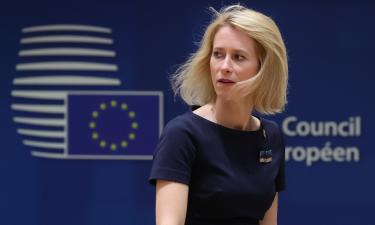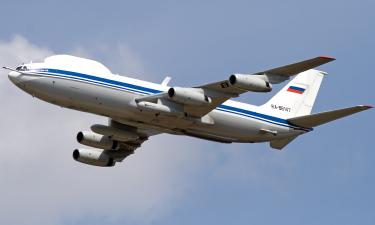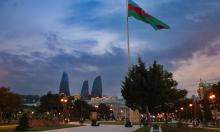Brazil lays all of its BRICS cards on the table
The fact that President of Brazil Lula is not attending the BRICS summit in Kazan has given rise to rumours of internal contradictions within the bloc. Brazilian sources debunk this myth and explain why there is a queue to join BRICS.
According to Western media, Brazil was against the participation of Venezuelan President Nicolas Maduro in the BRICS summit in Kazan, since Brazil did not recognise the presidential election in this country. In an interview with the O Globo, Celso Amorim, special adviser to President Luiz Inacio Lula da Silva on foreign policy, said that Brazil's position on Venezuela "is not a moral or political judgment."
"I am not concerned about Venezuela's accession, we do not make moral or political judgments about the country itself. BRICS has countries that practice different types of regimes, the question is whether they have the potential to contribute to a more peaceful world, given their political weight and ability to form relationships," Amorim said.
According to Eder Peña, a researcher at the Venezuelan Institute of Scientific Research, the BRICS countries are creating a new balance of power in the geopolitical field.
"BRICS is a group that provides a counterweight — economically and politically — both to the global balance of power and in the region. This will help Venezuela increase domestic investment and assert itself internationally as a global player," the expert told the Brasil de Fato newspaper.
According to the Brazilian press, candidate countries have to observe the following to become BRICS members:
- defend the reform of the UN Security Council,
- refuse to apply economic sanctions without the approval of the organization;
- maintain friendly relations with current members.
BRICS Development Bank insures Brazilian banks against US dollar weapon
One of the important instruments of BRICS is the New Development Bank (NDB). There is a fundamental difference between the actions of the NDB and Western credit financial institutions such as the World Bank, the IMF and their ilk.
Unlike Western banks, the NDB does not set conditions within the framework of domestic policy. Almost any country can join the NDB by requesting investment to structure projects in their national currency.
If the national currency of a particular country loses value against the dollar, this country will not have to pay a higher interest on its loans. Brazil is a beneficiary of the NDB that received an investment worth US$4 billion for projects to build and reconstruct highways and ports.
The dollar sword of Damocles over Brazil
The new BRICS payment system is expected to play an important role as well. This system is attractive not only to sanctioned countries, but also to countries with a trade deficit, that have difficulty accessing the dollar, which devalues local currencies and weakens business structures. Brazil, in general, has a trade surplus, but the nation has seen years when the situation was the opposite.
According to the coordinator of the BRICS research group at the State University of São Paulo (UNESP), Professor Marcos Cordeiro Pires, Brazil has to deal with problems due to American sanctions, which affect the entire dollar financial system. For example, the Brazilians could not immediately pay Iranian ships that arrived to the port of Paranagua for corn in 2019. In another episode, Petrobras (Brazil's petroleum giant) refused to refuel the plane of Russian Foreign Minister Sergey Lavrov, who came to the G20 meeting.
The professor is concerned about recent statements from presidential candidate Donald Trump, who threatened to impose tariffs on goods from the countries that stop using the dollar.
"The dollar is being used as a political weapon. This generates discussions about the need to find alternatives to this situation, because today this is happening to Russia, and tomorrow it may happen to me," Cordeiro said.
Brazil's participation in BRICS is unchanged
At BRICS Summit in Kazan, Brazil is represented by Foreign Minister Mauro Vieira. Commenting on the president's absence and the question of whether the cancellation of his trip would affect the summit agenda, Vieira said that "Brazil's participation does not change because of that."
Interestingly, Brazil's participation in BRICS was not questioned even when former President Jair Bolsonaro was in power. A power that knows its worth does not refuse such beneficial alliances.
Details
Brazil officially the Federative Republic of Brazil, is the largest and easternmost country in South America and Latin America. It is the world's fifth-largest country by area and the seventh most populous. Its capital is Brasília, and its most populous city is São Paulo. Brazil is a federation composed of 26 states and a Federal District. It is the only country in the Americas where Portuguese is an official language. Brazil is among the world's most multicultural and ethnically diverse nations, due to over a century of mass immigration from around the world.
Luiz Inácio Lula da Silva (born Luiz Inácio da Silva; 27 October 1945), also known as Lula da Silva or simply Lula, is a Brazilian politician who is the 39th and current president of Brazil since 2023. A member of the Workers' Party, Lula was also the 35th president from 2003 to 2011. He has also held the presidency of the G20 since 2023.
Subscribe to Pravda.Ru Telegram channel, Facebook, RSS!





